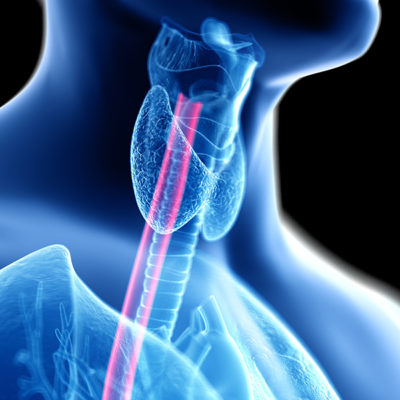
Achalasia is an uncommon condition that causes fluid and food to leak from the stomach into the small intestine (small intestine)
Because of this abnormality, the small intestine becomes less relaxed and dilated and eventually stops working properly. Over time, food collects in the small intestine and may even ferment, washing back up to the mouth where it tastes bad. This condition can be life threatening if left untreated.
The condition is manifested by the body's inability to relax the small intestine enough to allow food to pass, which greatly aggravates the patient's symptoms. Most people with achalasia experience symptoms such as gas, bloating, nausea, abdominal pain, constipation, diarrhea, and abdominal discomfort.
Most people with this condition have had bouts of diarrhea and abdominal discomfort before, but only because of digestive problems. The absence of diarrhea caused by achalasia further exacerbates the situation.
It is difficult to pinpoint the exact cause of achalasia, but many studies show that people with digestive problems are more likely to develop the condition. People with celiac disease, kidney and liver problems are some of the factors that can cause achalasia. If a person with achalasia suddenly has diarrhea or constipation, it is very important to see a doctor.
Achalasia is caused by a malfunction of the part of the small intestine that is responsible for the passage of food. When this area of the small intestine is not functioning properly, it cannot absorb nutrients adequately, leading to dehydration and even malnutrition. When this happens, the absorption of water from food is reduced. This is why most people with achalasia experience alcohol cravings.
There are various factors that contribute to the onset of Achalasia. These include genetics, medications, stress, digestive tract disorders and even pregnancy.

Since Achalasia occurs with fluid leakage and can affect the functioning of a person's body, doctors recommend that a patient undergoes a series of tests to determine the exact cause. In most cases, doctors recommend a combination of drugs and surgery.
For people with Achalasia, it is important that they learn to follow a proper diet
There are various foods that are high in nutrients that help to alleviate the symptoms. pain and other conditions. Since most patients have the symptoms disappear on their own, people with the condition should eat as many fresh fruits and vegetables as possible.
A healthy diet should also include a daily intake of vitamins and minerals. As much as possible, people with Achalasia should drink eight glasses of water daily to stay hydrated.
In order for a patient with Achalasia to fully recover, proper care and attention should be given by their medical doctor. These doctors will most likely prescribe a series of tests to determine the exact cause of the condition.
Proper nutrition is the most important aspect of treatment for people suffering from Achalasia. Proper nutrition can help to ensure that they remain healthy even when the condition worsens. It is also important to watch out for foods that are high in fat, sugar, salt and sodium.
Proper hygiene and cleanliness are also important aspects in this process. People with Achalasia need to make sure that their skin is properly taken care of. Regular bathing is important to prevent infections, especially in the face, neck and hands.
The most effective way to deal with this condition is to exercise regularly. People need to be careful about what they eat, but they also need to be careful not to overeat, because too much eating will only make things worse.